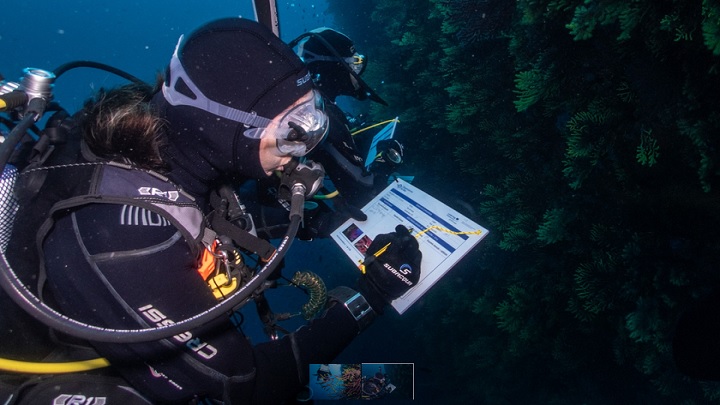News

Citizen science to mitigate the environmental crisis in the marine environment
A new study by the UB and the ICM-CSIC reveals that the participation of volunteers in citizen science projects like Observadores del Mar is an effective tool to help conserve corals and gorgonians, which are highly threatened in the Mediterranean due to global change.
22/02/2024
Citizen science can help to improve conservation and management strategies for Mediterranean marine ecosystems, and to mitigate the impact of the environmental crisis. This is the conclusion of a study by the University of Barcelona and the Institute of Marine Sciences (ICM-CSIC), which highlights the scientific rigour of the work carried out by volunteers in assessing the state of conservation of corals and gorgonians on the Mediterranean coast. In addition, the results of the citizen science initiative also warn of the increase in the mortality of these species at many points along the Costa Brava (Girona).
The study, published in the journal Environmental Management, shows the improvement of the scientific quality of the data collected by the volunteers (regarding precision and accuracy).
“With only one training session, they reached values equal to those obtained by scientists”, says Professor Cristina Linares, ICREA Academia professor from the UB’s Faculty of Biology and the Biodiversity Research Institute of the UB (IRBio), who coordinated the research, published together with Joaquim Garrabou, from ICM-CSIC, both members of the MedRecover research group, both part of the scientific team of the project Coral Alert.
CITIZEN SCIENCE IN DEFENCE OF MARINE ECOSYSTEMS
The Mediterranean coral reef, formed by the accumulation of calcareous organisms, is home to more than 1,600 marine species that have been affected by the rise of water temperatures over the last years. This study was carried out as part of the Coral Alert project of Observadores del Mar, to train volunteers in the study of the distribution and ecological status of populations of octocorals and hexacorals affected by human disturbances (largely by the temperature rise).
The team compared the data obtained in the Costa Brava by the volunteers with different training levels in the application of the sampling protocol, to observe whether there as an improvement between the first and the second sampling after training.
“The data on the assessment of the state of conservation, obtained from the percentage of affected colonies, collected by volunteers who trained for two days, are comparable to the data obtained by the scientists. After only one day of training, the volunteers obtained quite remarkable results from the first sampling”, notes Cristina Linares, from the UB’s Department of Biology, Ecology and Environmental Sciences.
Key factors in the study are the previous training the volunteers receive and the expert validation of the data before their transfer and analysis.
“The validation process by the experts is essential to guarantee the assessment of the conservation state to be consistent and reliable”, says Laura Figuerola, predoctoral researcher at MedRecover.
Read full new at the University of Barcelona website: here.
